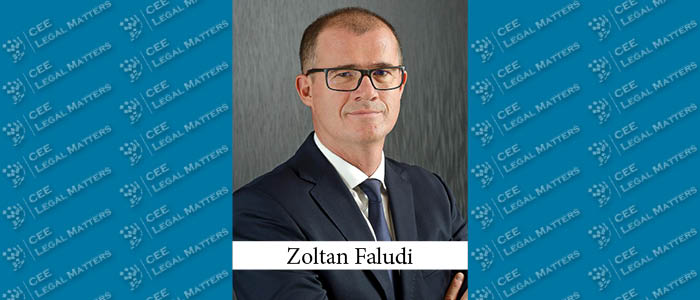The Hungarian government is actively shaping the market and there are both positive and negative effects on many levels, according to Wolf Theiss Managing Partner Zoltan Faludi.
“Looking at the current investment climate, there are a few interesting matters of note,” Faludi begins. “The good news is that investors' appetite is still positive and strong and we have noticed inbound investment coming along in a quite vibrant fashion, despite the after-effects of the COVID-19 pandemic and the ongoing war in Ukraine.” As he sees it, it's all “a matter of balance between predictability and transparency, measuring the effects of governmental interference and activity in the short term against the long run.”
According to Faludi, the Hungarian government has taken quite an uncustomary approach to many business areas and sectors. “There is a discussion underway regarding the new concept of the Architecture Act, which intends to extend the scope of regulatory intervention over a wider range of construction materials,” he says. “This imposes quite a hit on building material manufacturers, especially when it comes to the potential export of their products. The increase of regulatory reach in this area impacts construction endeavors the most, increasing industry uncertainty.”
Furthermore, Faludi reports that there has been some friction with respect to the recently introduced tax on extra profits. “The new tax impacts a wide area of sectors, most so energy, banking, and pharmaceuticals. Questions of justifiability abound and, while there are some good reasons as to why it was introduced, its entering into effect did not resonate well with everyone.” Additionally, he says that the recent implementation of the FDI screening control mechanism has also created an air of uncertainty, to an extent. “The screening mechanism, while by no measure unprecedented, does appear to be somewhat overarching. For example, it is treating intra-EU and extra-EU investments the same, which might be, to an extent, more stringent than its original purpose.”
However, not all governmental interference causes friction, and Faludi reports a number of positives. “There have been a lot of subsidies targeting investors, primarily via cash incentives and favorable regulations,” he reports. “This has led to an uptick in business activities across sectors, primarily in automotive, which is a big ticket for the Hungarian economy.” Additionally, he says there is finally a plan for a new regime for investing in wind-powered renewable energy sources. “The last time we’ve seen a tender for wind power was in 2016, and things have been quiet since. However, recently, and within the auspices of the Hungarian Recovery and Resilience Plan, on-shore wind power sources are back in action,” he says. “At long last, in addition to solar subsidies, we will soon see a new regime targeting wind projects and allowing for more vibrant investments to take place.”
Finally, Faludi says that “looking at the big picture, investments are going strong and the climate outlook is rather positive. Investor appetite abounds and I hope that governmental interference won’t create any pushback.” He concludes by saying: “with many companies relocating their production centers to Hungary, brands like BMW setting up an electric car production facility, and further new production plants emerging in the high-tech sector, we are looking at good things to come.”




